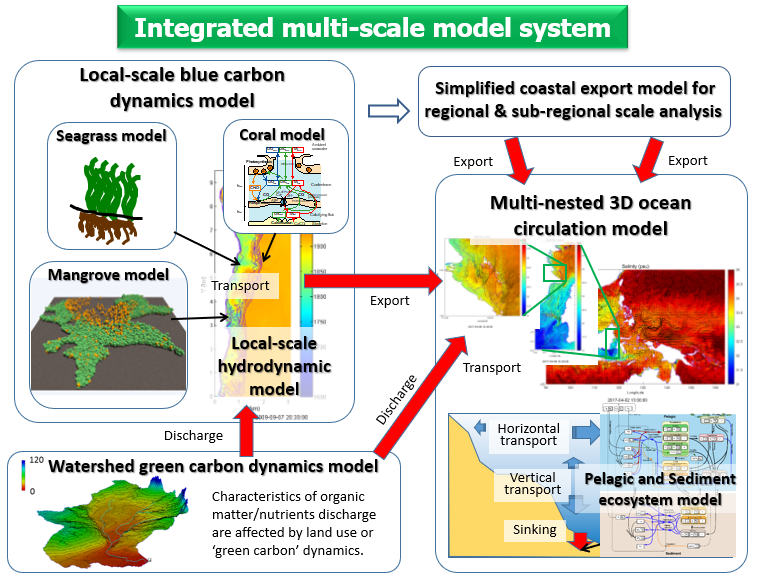International contributions to the conservation of coastal ecosystems
Evaluating coastal seas for the realization of a sustainable society and promotion of social change (COAST Card)
Organizations: [In Japan] Tokyo Institute of Technology, Association for Shore Environment Creation, Tokyo University of Marine Science and Technology, Japan Fisheries Research and Education Agency, and others
[Overseas] University of Maryland (US), University of the Philippines Diliman (Philippines), Council of Scientific & Industrial Research/National Institute of Oceanography (India), University of Bergen (Norway)
This research is being undertaken for the purpose of building a new framework based on a super-interdisciplinary network that will enable rational policy decisions to be made for the realization of a sustainable state of coexistence between society and coastal ecosystems through the development and application of COAST Card, an integrated system comprising innovative tools consisting of Report Card (RC), Social Network Analysis (SNA), and System Dynamics Modeling (SDM). COAST Card allows stakeholders in applicable areas to be closely tied to the process of developing core elements of the system and play proactive roles in the operation of the system. For this reason, an interface environment designed for general users is also being developed.
Coastal Ecosystem Conservation and Adaptive Management (CECAM) project in the Philippines
Organizations: [In Japan] Tokyo Institute of Technology, Atmosphere and Ocean Research Institute of the University of Tokyo, Asian Natural Environmental Science Center of the University of Tokyo, Hokkaido University, Hachinohe Institute of Technology, Kochi University, Nagasaki University, University of the Ryukyus, Port and Airport Research Institute
[Overseas] University of the Philippines Diliman (Philippines) and others
Ecosystems in the biodiversity-rich coastal areas of southeast Asia are rapidly degrading due to the interplay of environmental stress caused by human activities and the impact of changes in the global environment. This research project, which is being undertaken in the Philippines, seeks to clarify the mechanisms by which the biodiversity of coastal ecosystems is maintained, comprehensively evaluate the actual state of environmental stress, and analyze the response of ecosystems and processes by which ecosystems recover in the face of multiple sources of stress as well as the socioeconomic structures of local communities that cause such sources of stress. Accordingly, a new scheme for the conservation and management of coastal ecosystems will be developed and deployed in order to maintain a high level of biodiversity and disaster-prevention functions in a stable manner and make it possible for local communities to sustainably grow.
Comprehensive evaluations and conservation strategies in the Coral Triangle ecosystem (BlueCARES)
Organizations: [In Japan] Tokyo Institute of Technology, Atmosphere and Ocean Research Institute of the University of Tokyo, Hokkaido University, Nagoya University, Hachinohe Institute of Technology, Forestry and Forest Products Research Institute of the Forest Research and Management Organization, Japan International Research Center for Agricultural Sciences, and others
[Overseas] University of the Philippines Diliman (Philippines), Ministry of Marine Affairs and Fisheries (Indonesia), Bandung Institute of Technology (Indonesia), and others

The primary purpose of this research project is to formulate and declare, based on various surveys and the development and analysis of models, a Blue Carbon Strategy for the Philippines and Indonesia, which lie at the heart of the Coral Triangle, one of the most biodiverse places on earth. In implementing this strategy, focus will be directed towards blue carbon, which refers to carbon stored by coastal ecosystems, and support will be given to the reinforcement of blue carbon through the conservation of coastal ecosystems and increasing the ability of these ecosystems to recover, which should thereby help improve the global environment.

